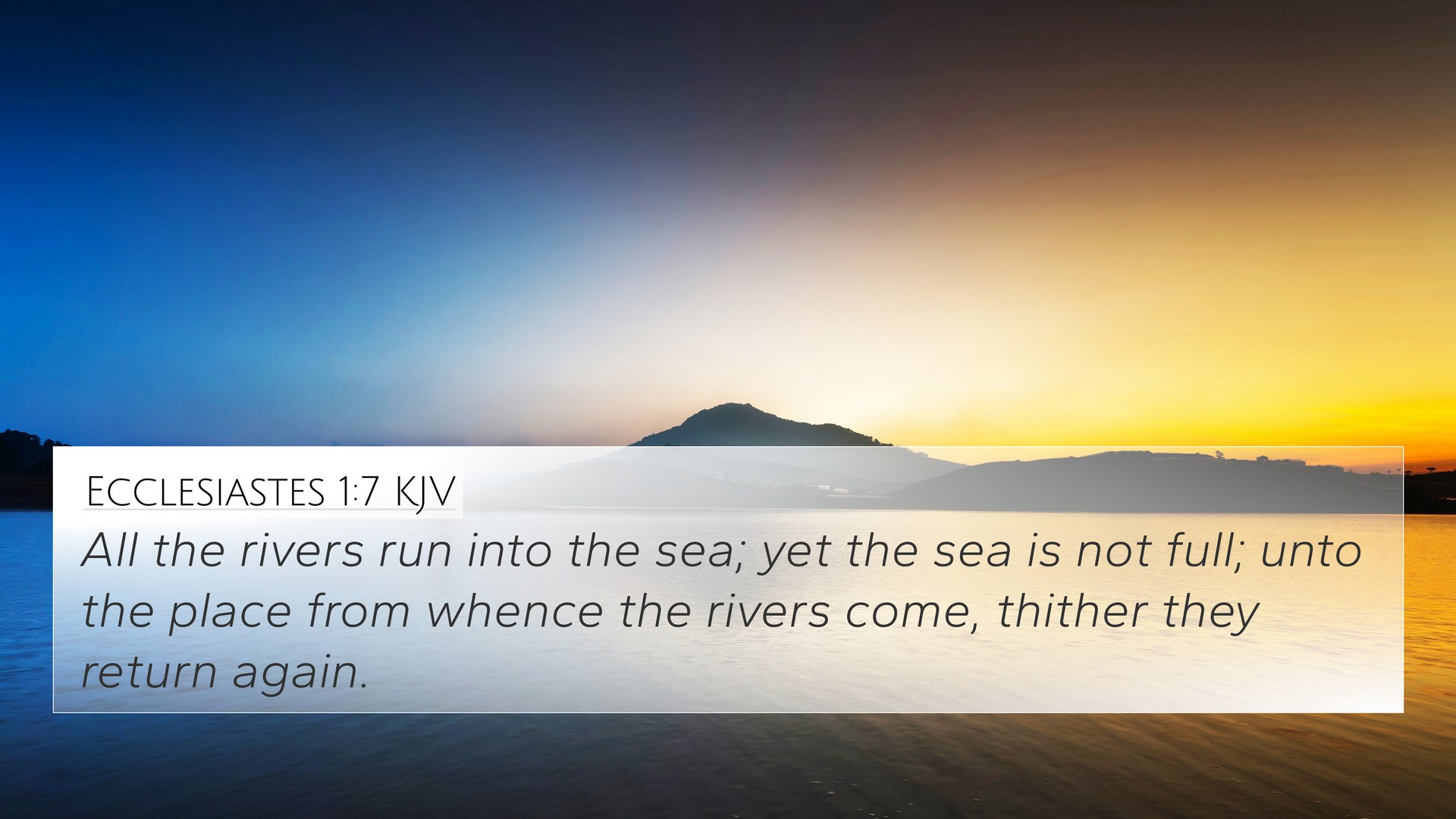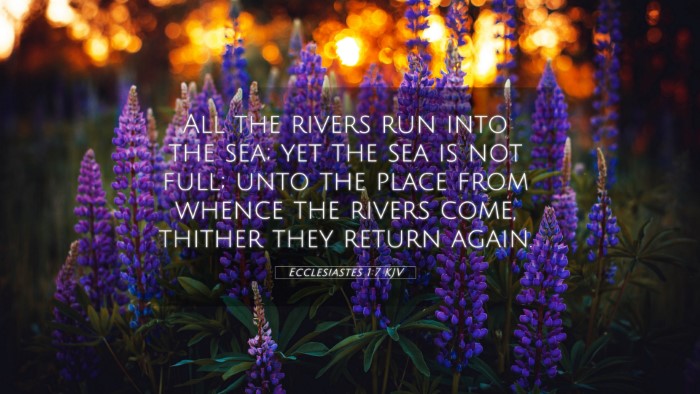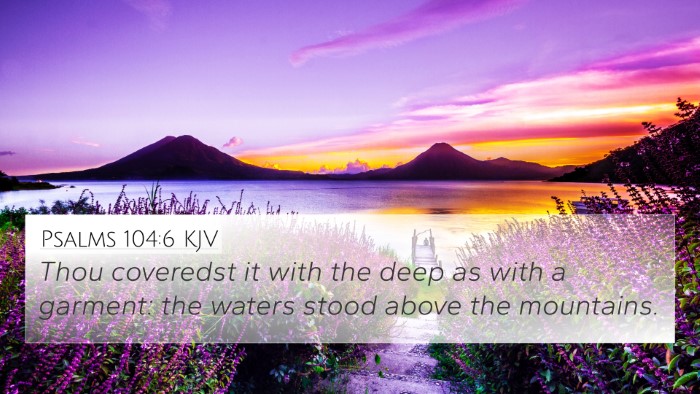Meaning of Ecclesiastes 1:7
Ecclesiastes 1:7 states: "All the rivers run into the sea; yet the sea is not full: unto the place from whence the rivers come, thither they return again."
This verse encapsulates a profound observation about the relentless cycle of nature and the human experience. Below, we explore insights drawn from public domain commentaries to understand its significance.
Understanding Ecclesiastes 1:7
This verse highlights the idea of perpetual movement and cyclical patterns in creation. The imagery of rivers flowing into the sea, yet never filling it, serves as a metaphor for life's unending pursuits and the elusiveness of satisfaction.
Insights from Commentaries
-
Matthew Henry:
Henry emphasizes the pointlessness of striving for earthly gains, suggesting that just like the rivers continuously flow into the sea, people often find themselves in a cycle of unfulfilled desires and endeavors. The sea represents a goal that is ultimately unreachable, emphasizing the futility of our pursuits without divine purpose.
-
Albert Barnes:
Barnes elaborates on the natural order and the inevitability of these cycles. He asserts that everything in life returns to its source, illustrating the transient nature of human efforts and the underlying divine order that governs existence.
-
Adam Clarke:
Clarke interprets this passage as a reflection on the endlessness of human labor and the concept of eternity. He points out that while the rivers may pour into the sea, they eventually return to their source, drawing a parallel to the human soul's search for meaning.
Thematic Connections and Cross-Referencing
When considering the theme of Ecclesiastes 1:7, it’s vital to explore its connections to other scripture. Here are relevant cross-references:
- Job 14:1-2: Discusses the brevity and cyclical nature of human life.
- Psalms 104:8: Captures the cycles of nature, emphasizing God's creation.
- Isaiah 55:10-11: Speaks of the effectiveness of God's word in a cyclical process.
- James 1:7: Discusses the nature of human endeavors in the light of divine will.
- Philippians 3:13-14: Illustrates the pursuit of a goal that lies ahead.
- Romans 8:20-21: The creation's futility and its hope for liberation tie back to the verse’s themes.
- Ephesians 1:10: Explores God’s plan to unite all things in Christ, relevant to the cyclical return of streams.
Exploring the Connections Between Bible Verses
This verse serves as a reminder of the connections between various themes in the Bible, particularly the contemplation of life, the pursuit of purpose, and the acknowledgment of divine sovereignty. Observing this cyclical nature can encourage believers to seek fulfillment in God rather than in transient pursuits.
Application and Reflection
When reflecting on Ecclesiastes 1:7, consider the cyclical nature of your own experiences. Are there patterns of striving that lead to feelings of emptiness? This verse encourages readers to ponder the deeper meaning and ultimate purpose behind their actions.
In doing so, you might engage with tools for Bible cross-referencing and study methods that help illuminate these connections further. Utilizing a Bible concordance or a cross-reference guide can provide insights into related verses that deepen your understanding of life's cycles.
Conclusion
Ecclesiastes 1:7 is rich with meaning, inviting us to explore the interconnections within Scripture while encouraging a reflective approach to our pursuits in life. Engaging in comparative Bible verse analysis can enhance our appreciation of the thematic links woven throughout the biblical narrative.




